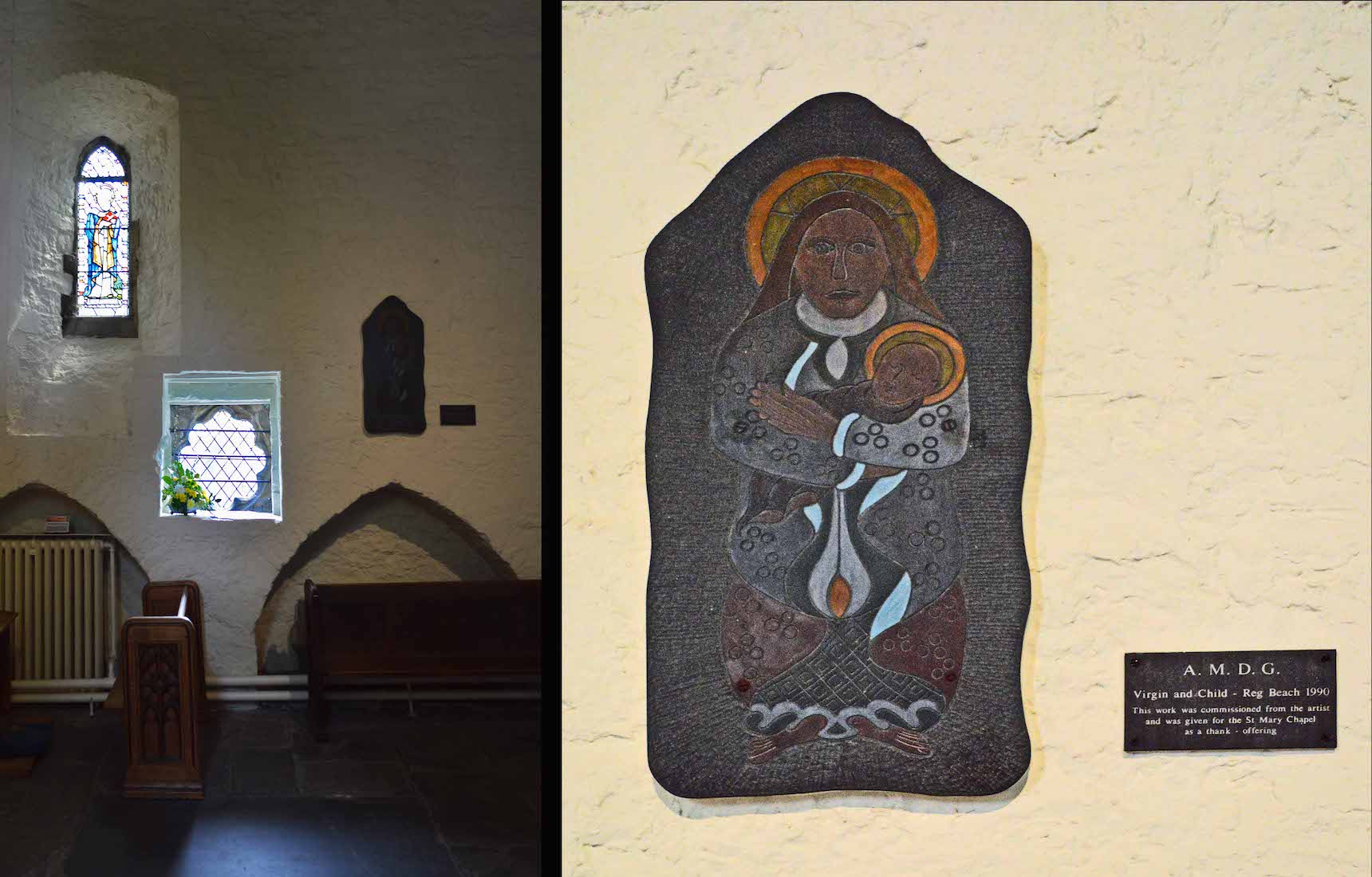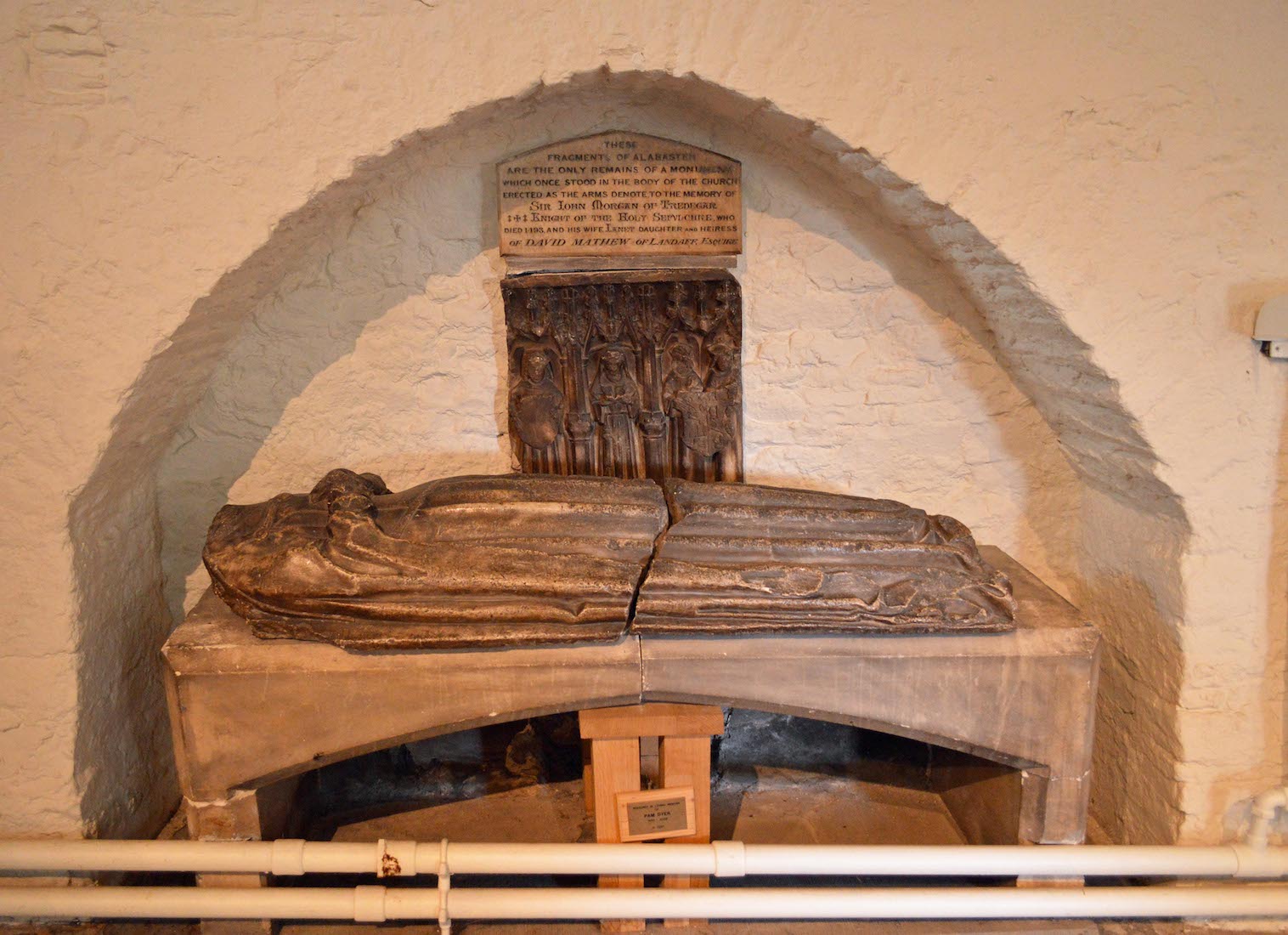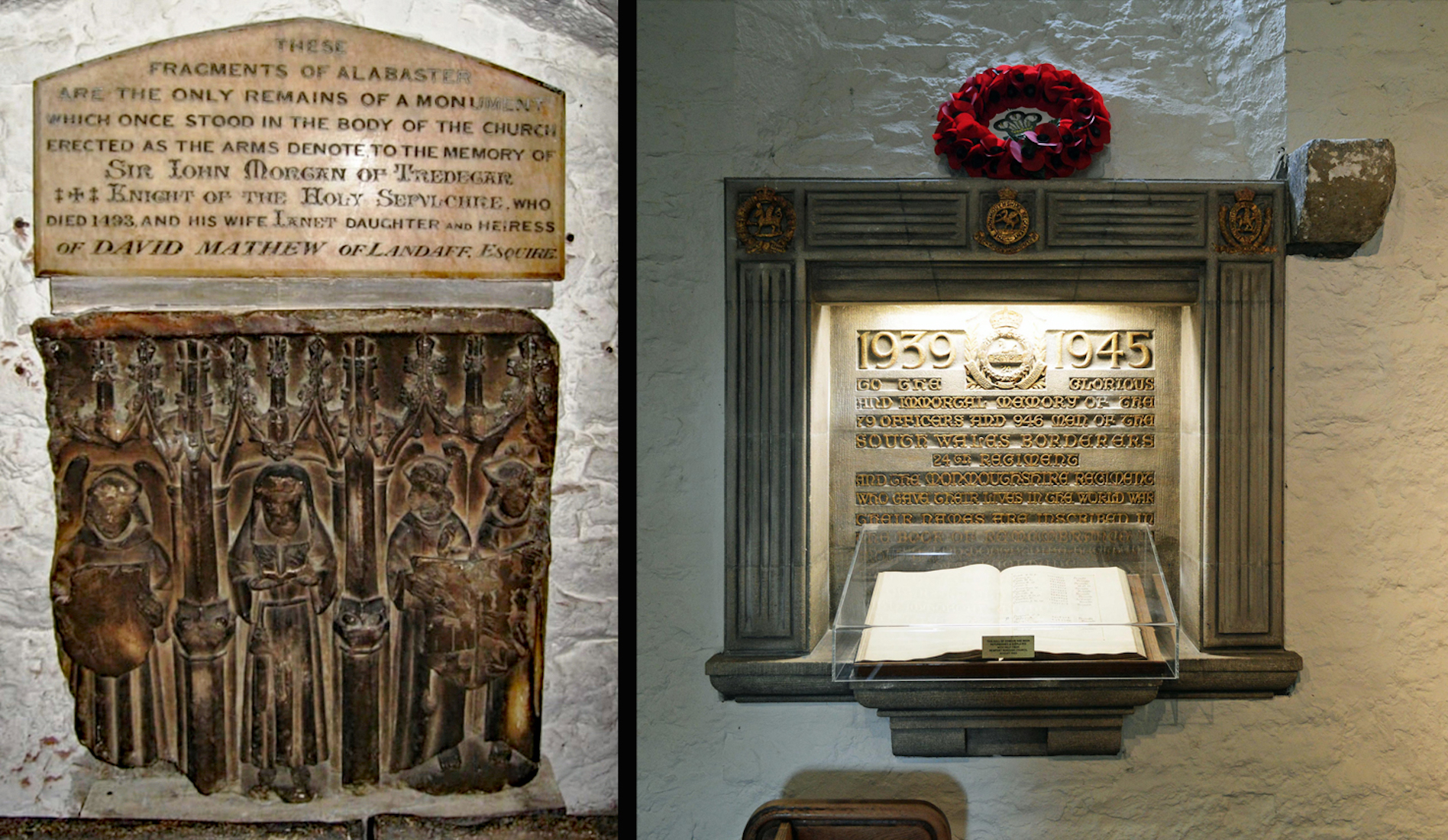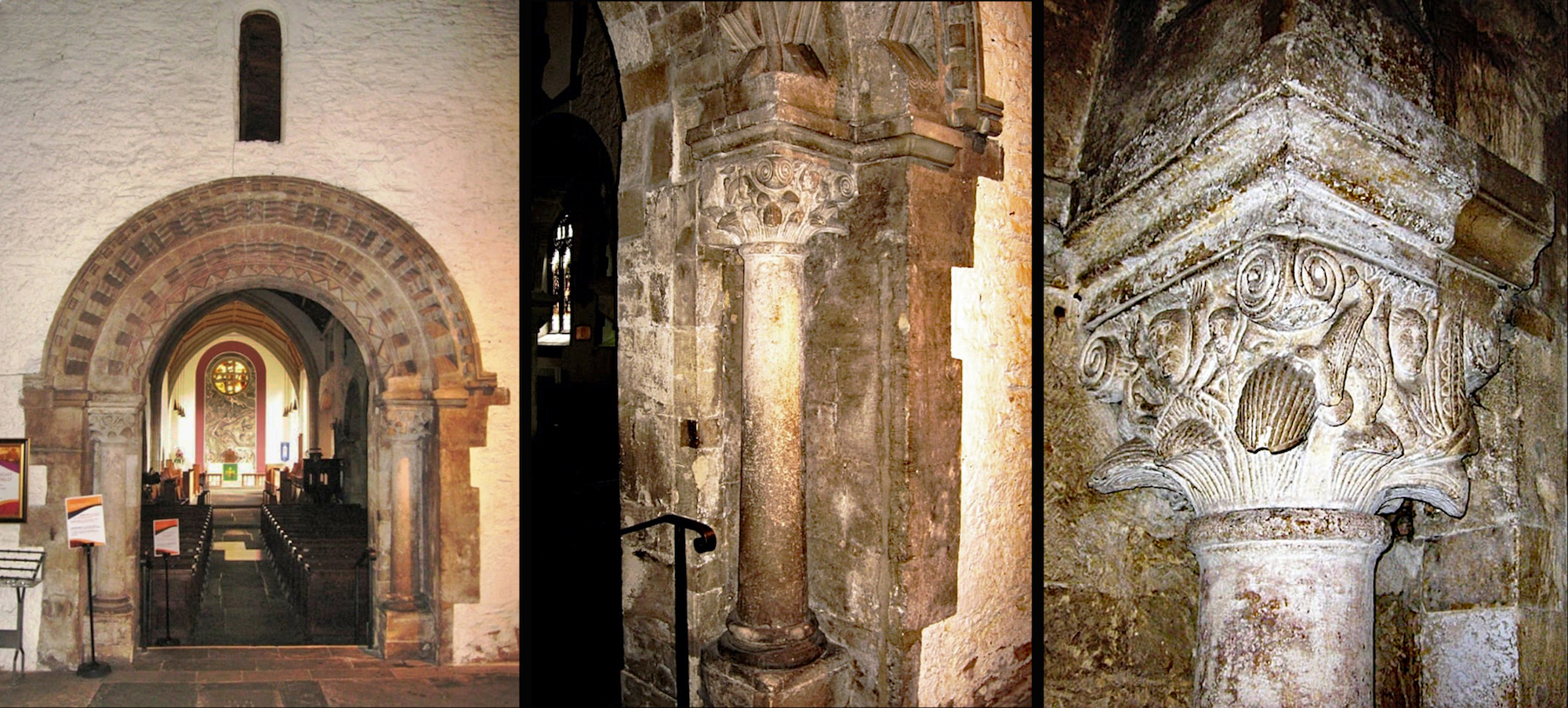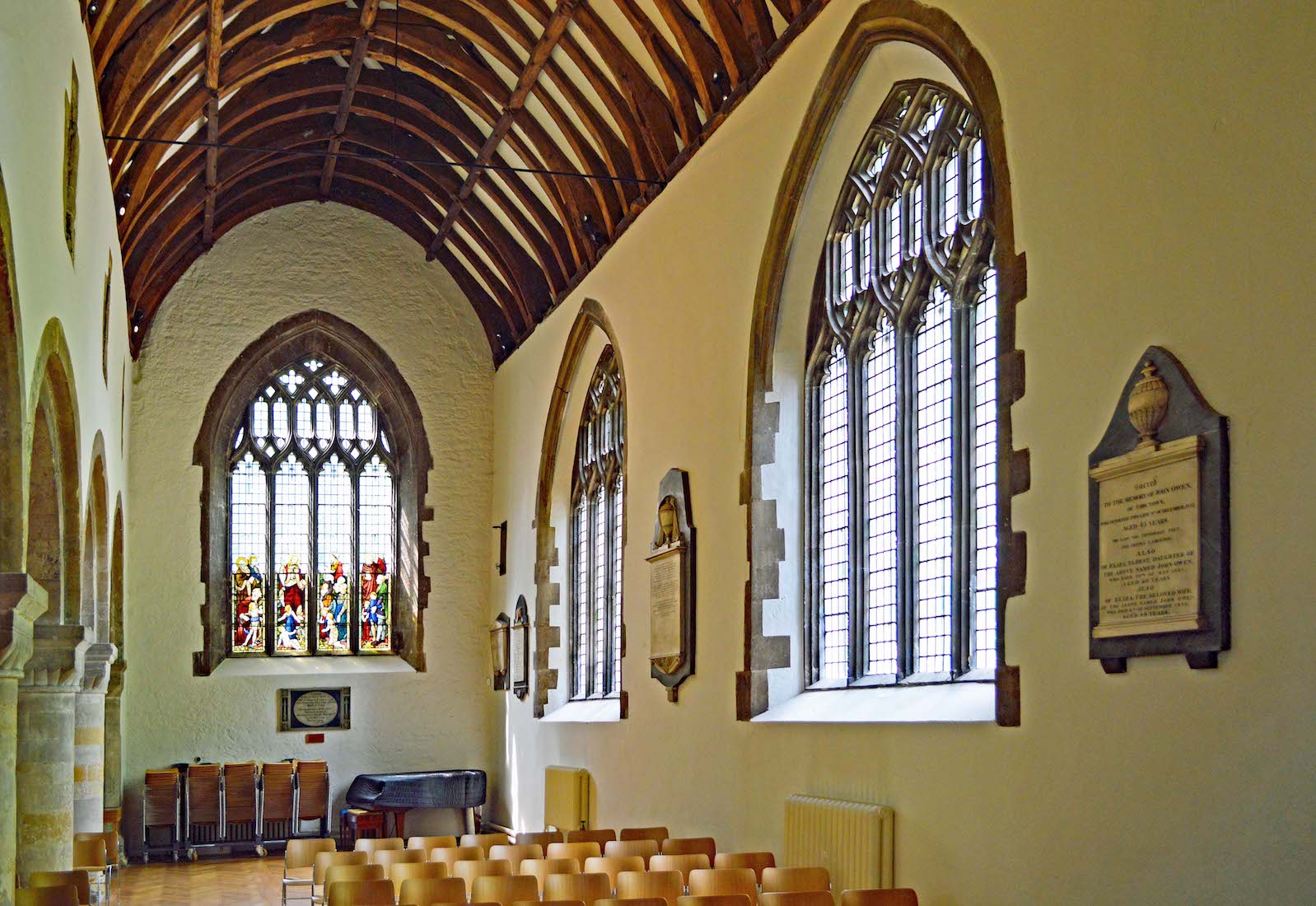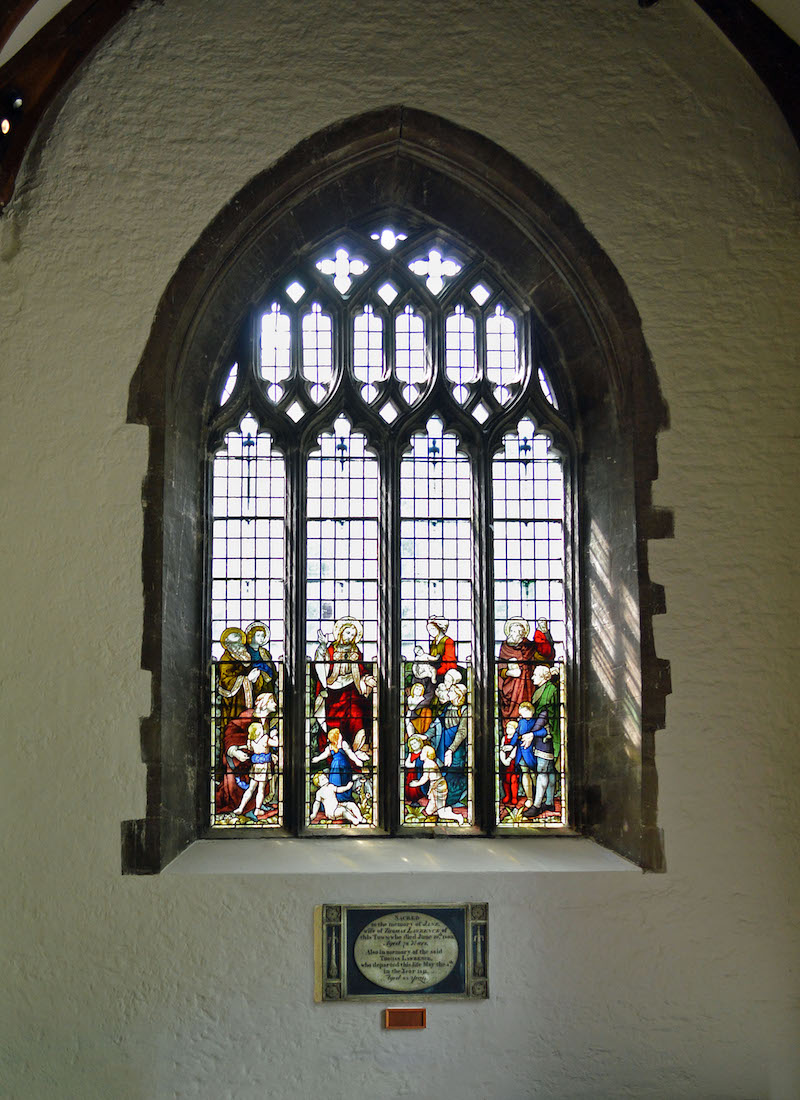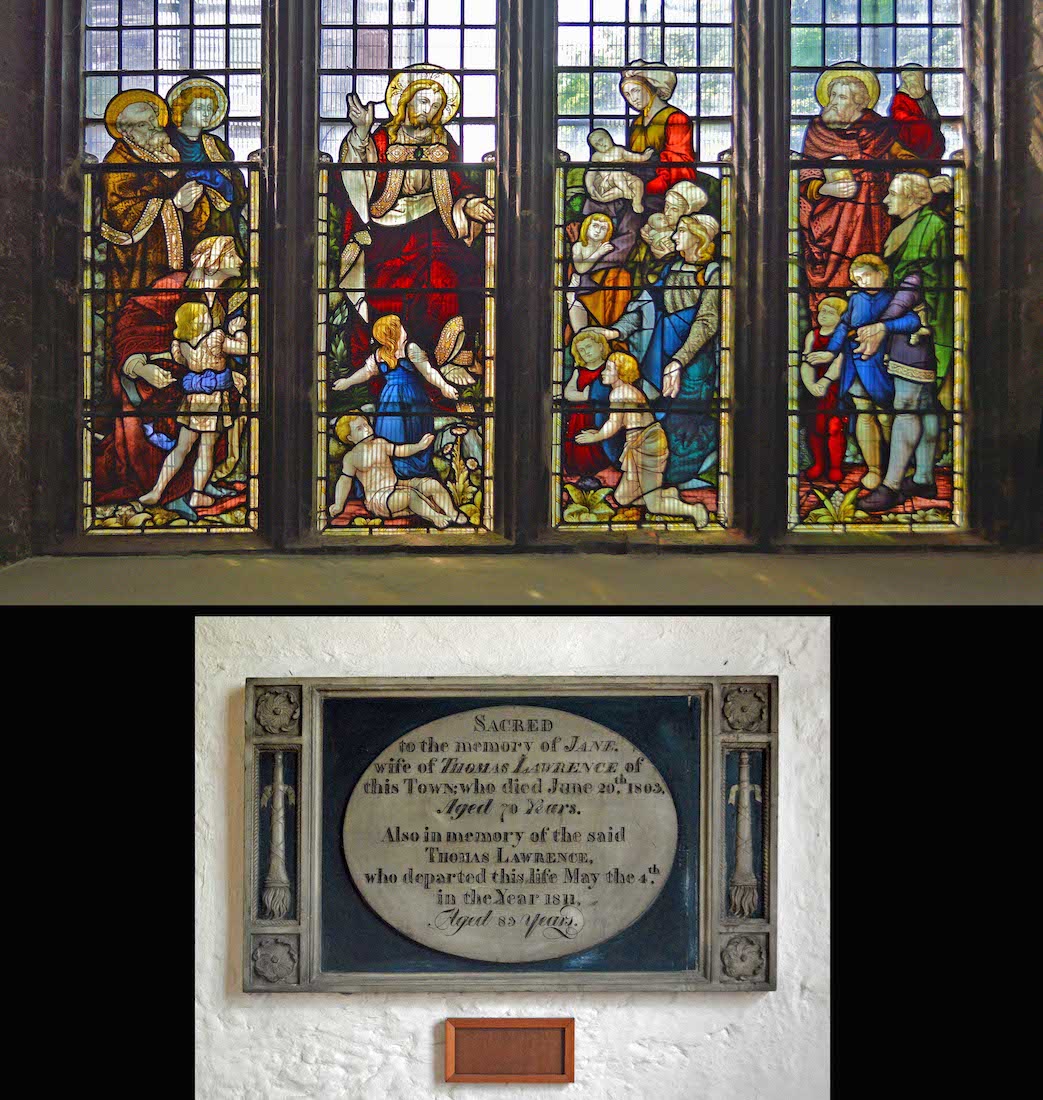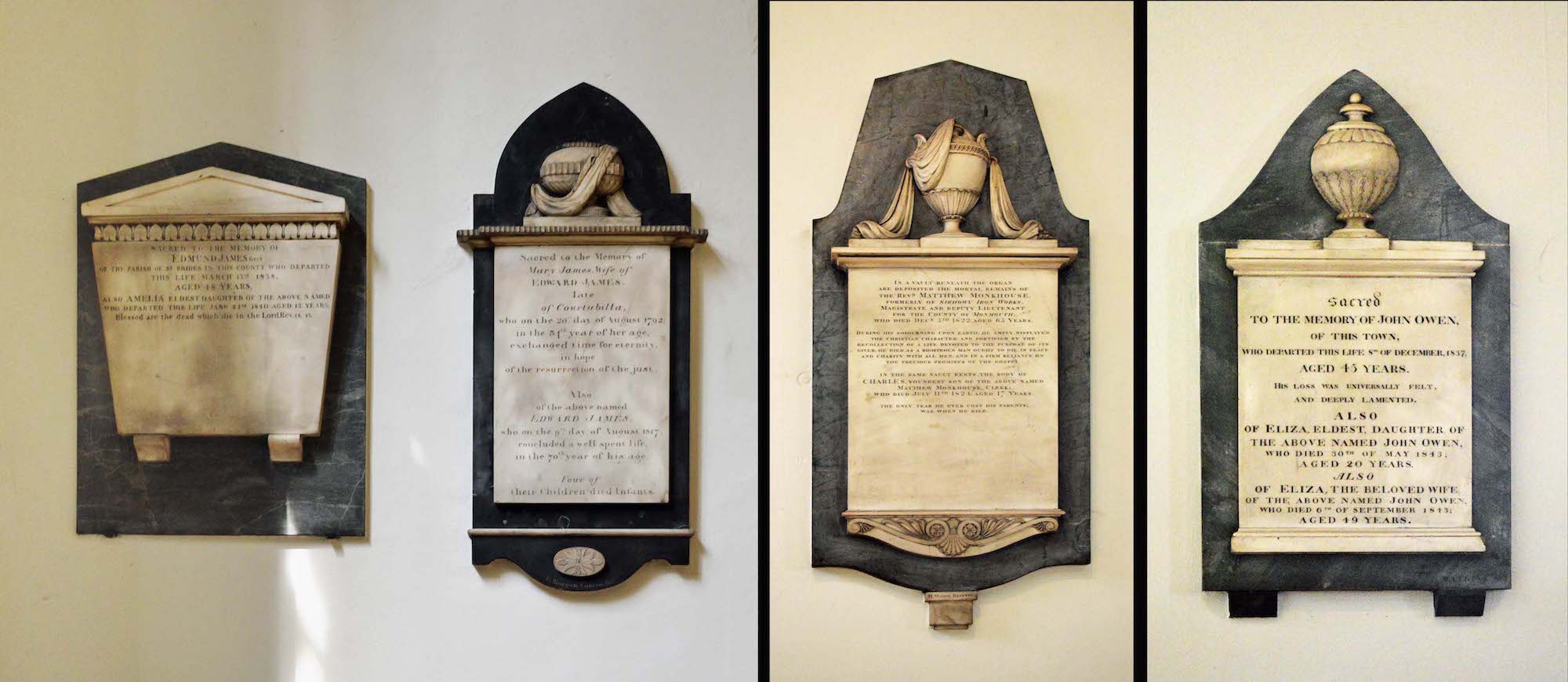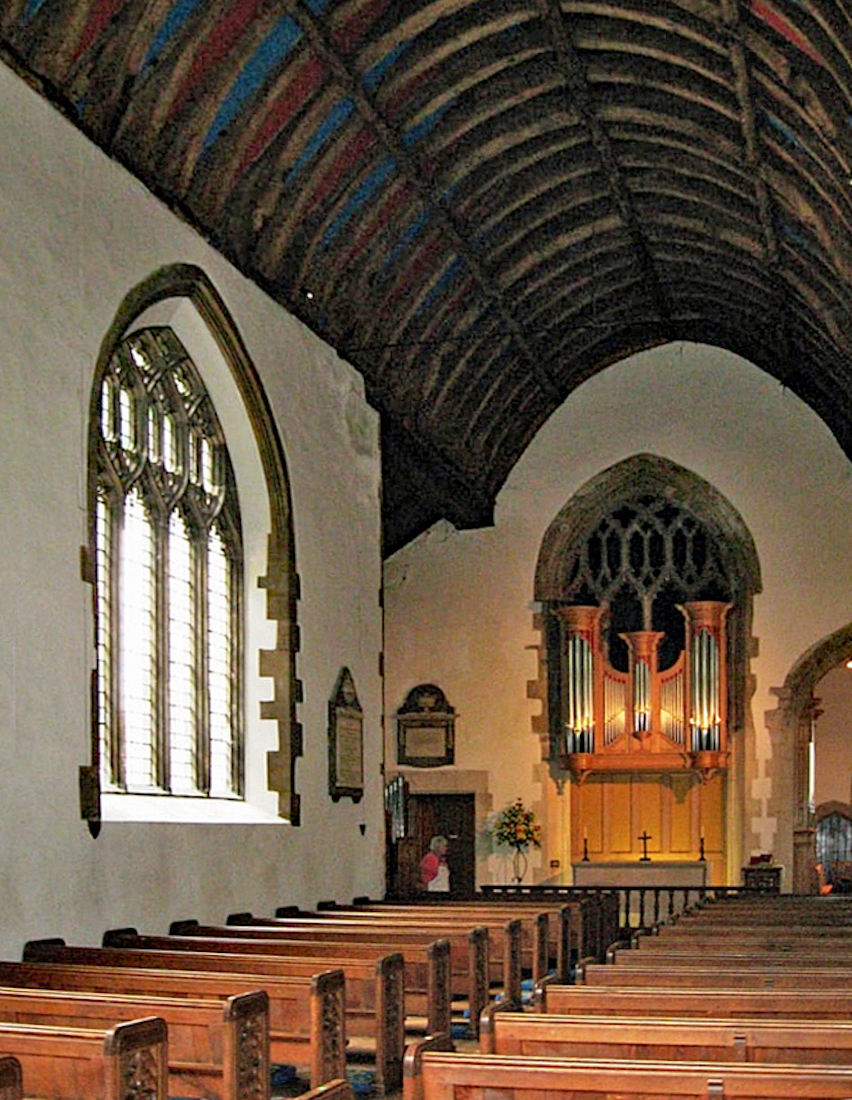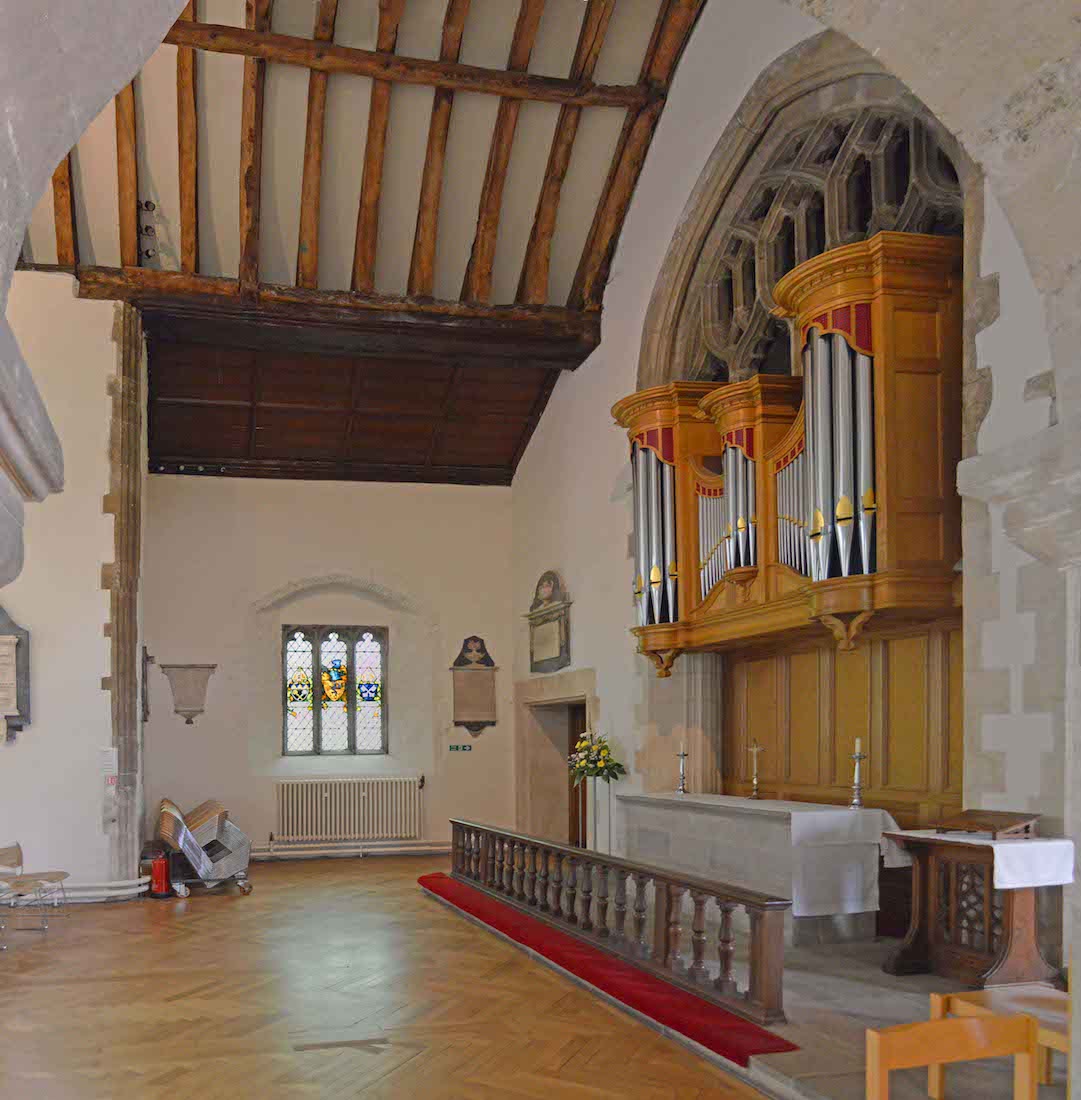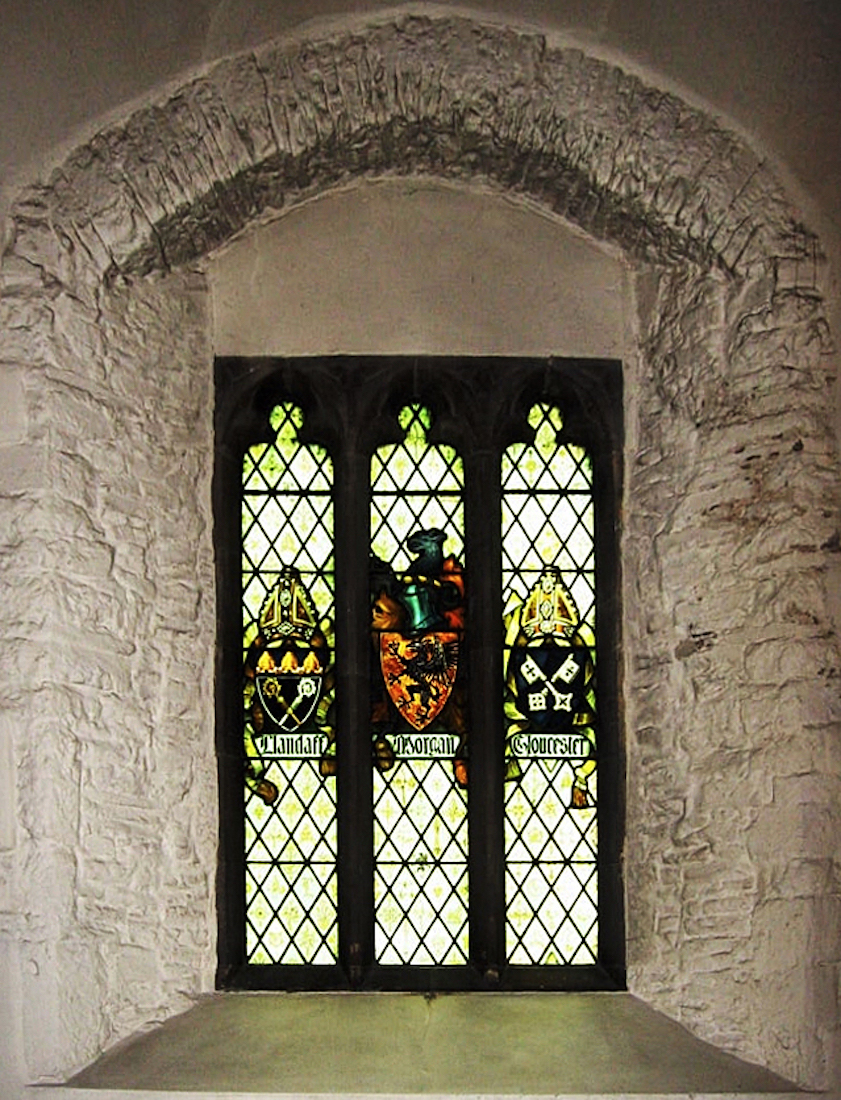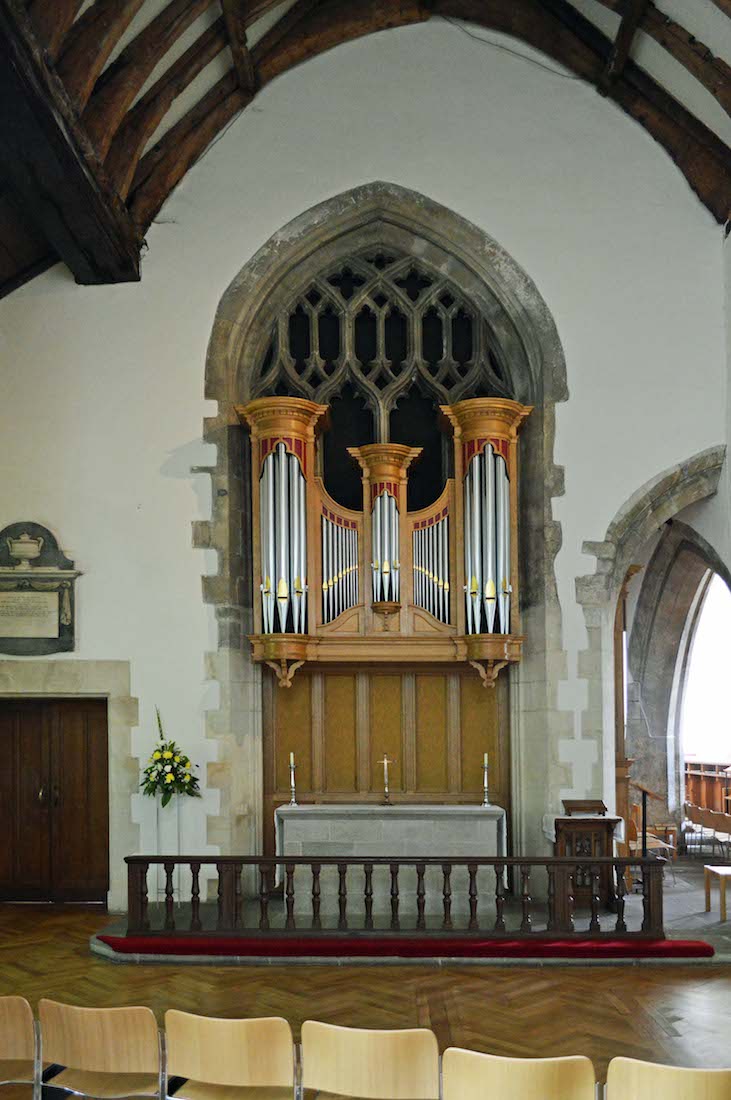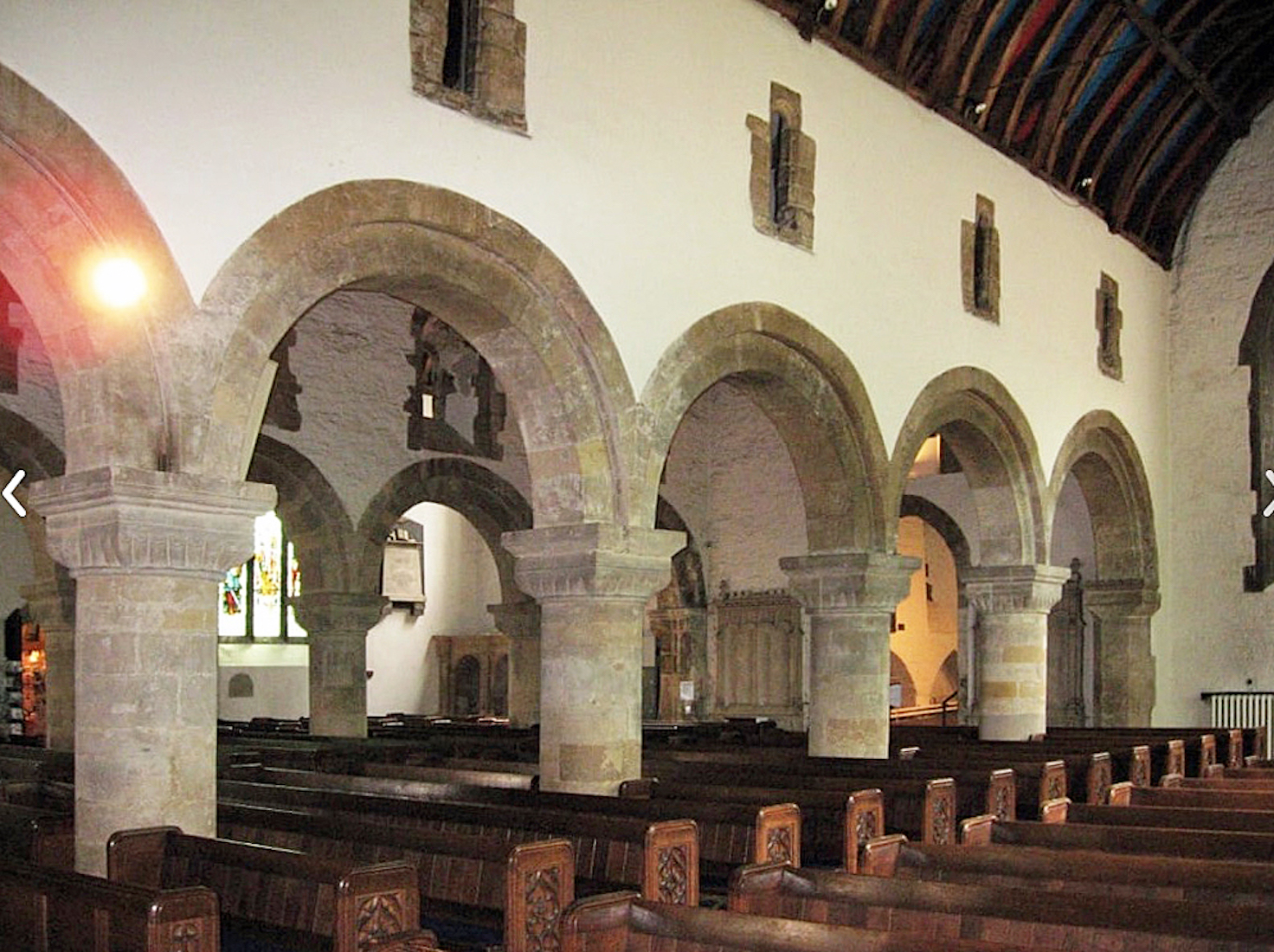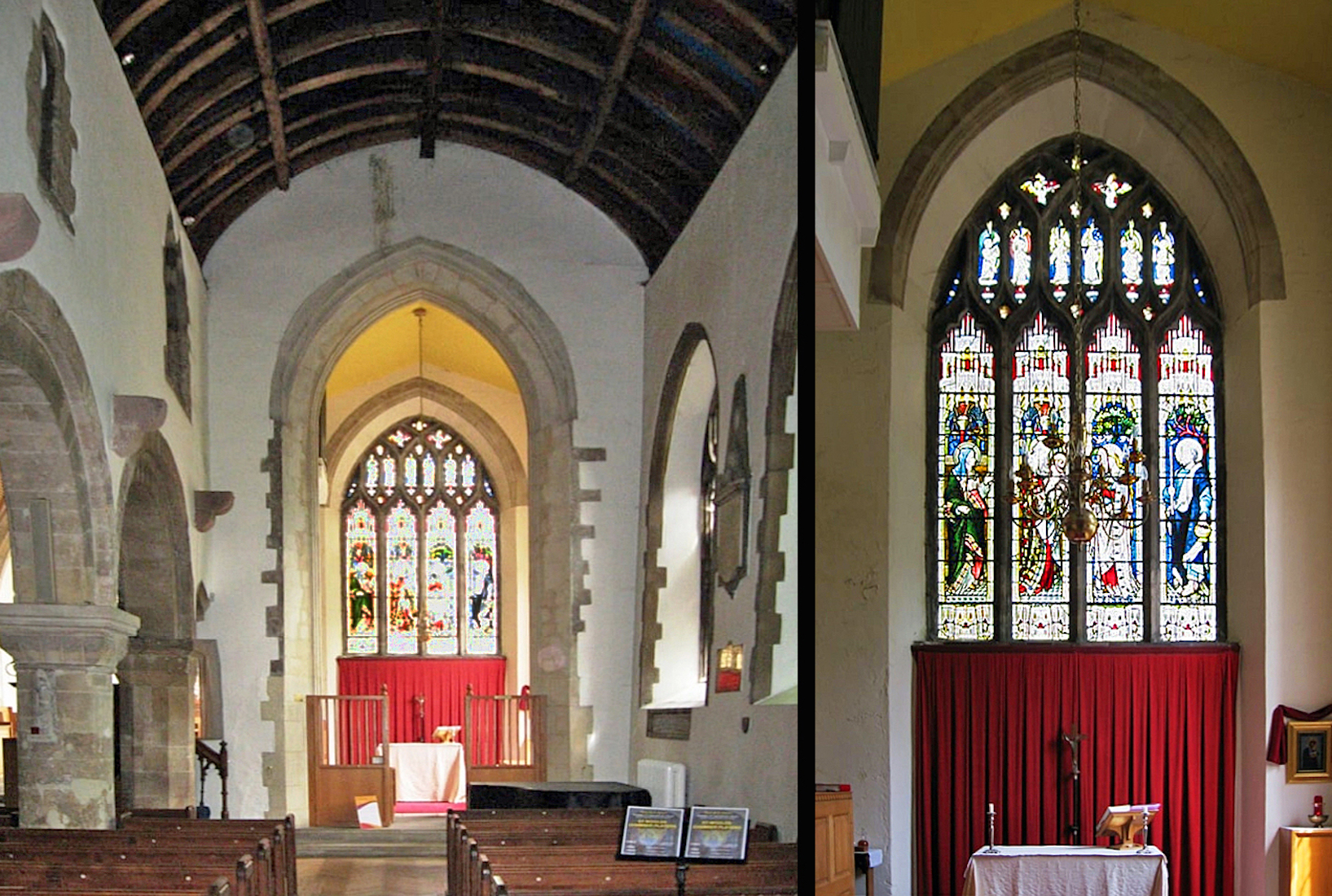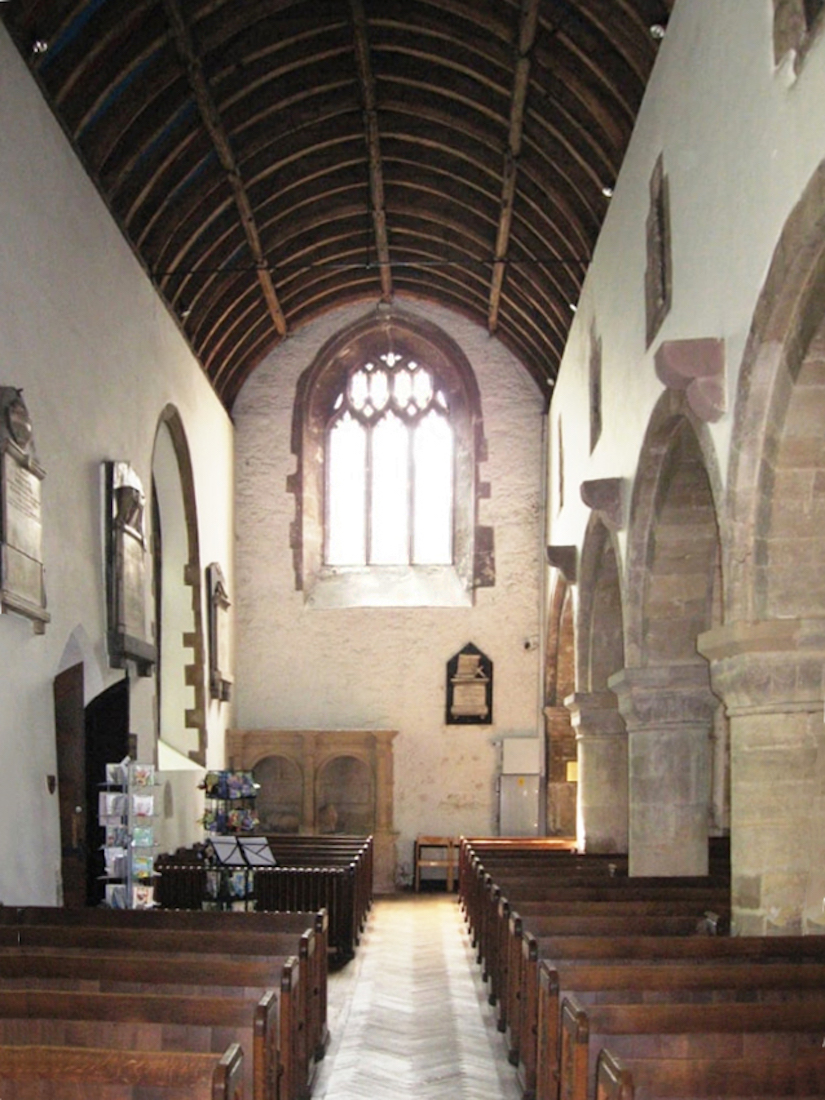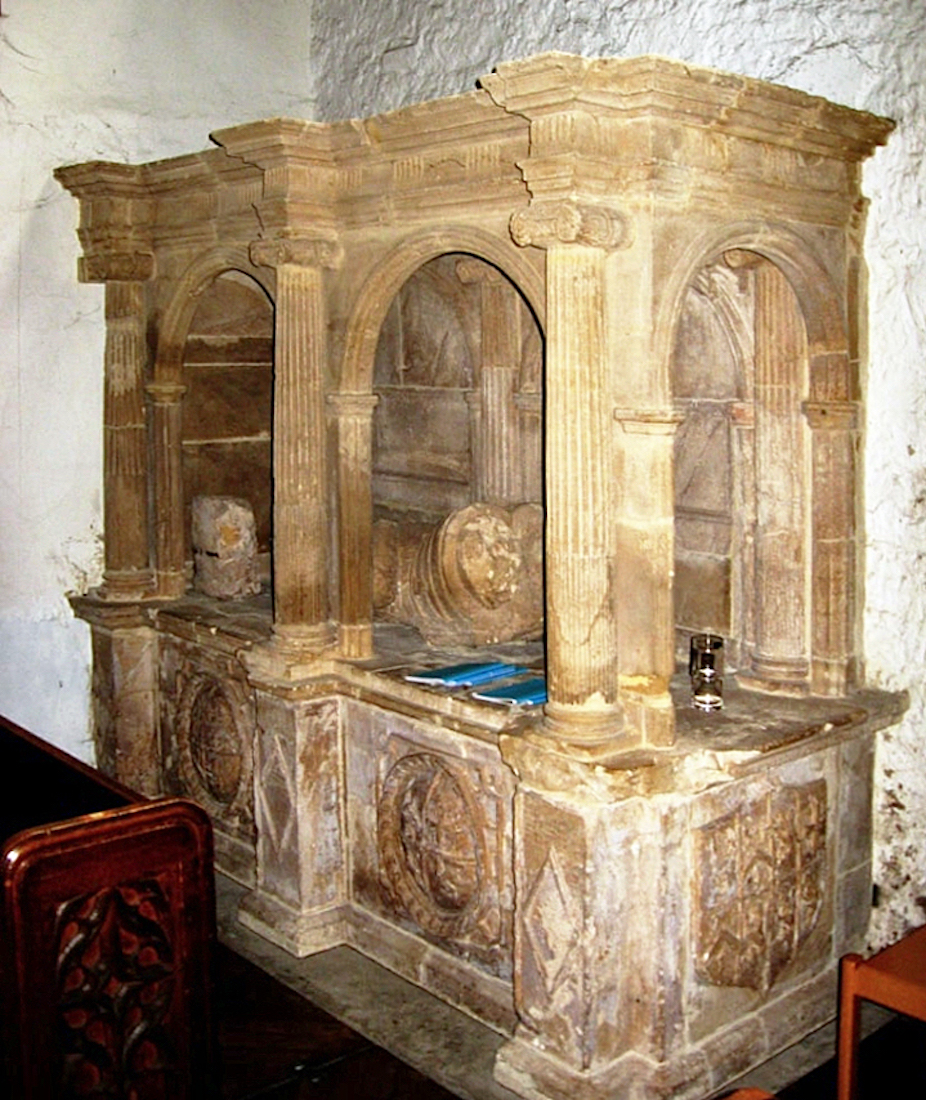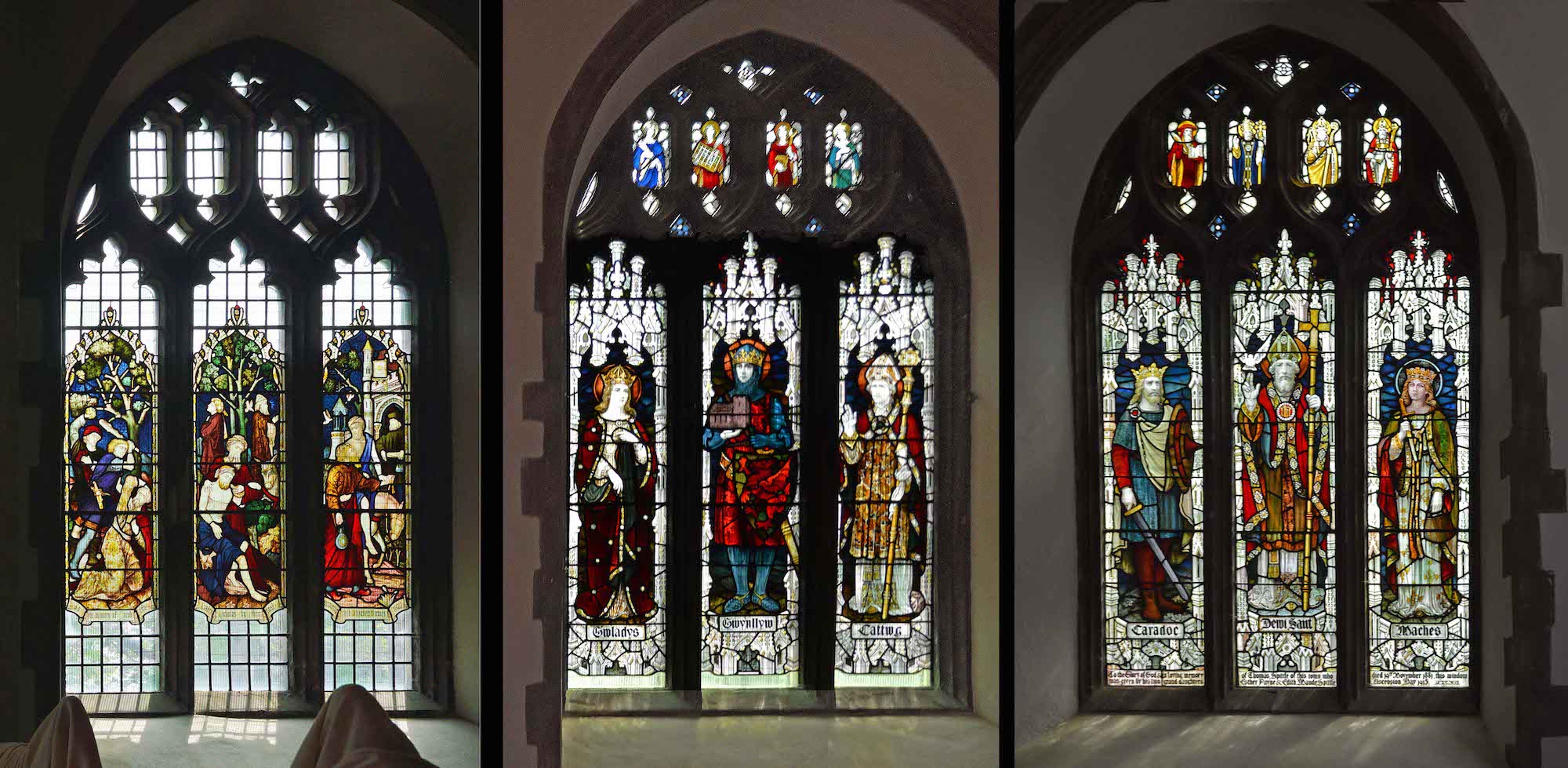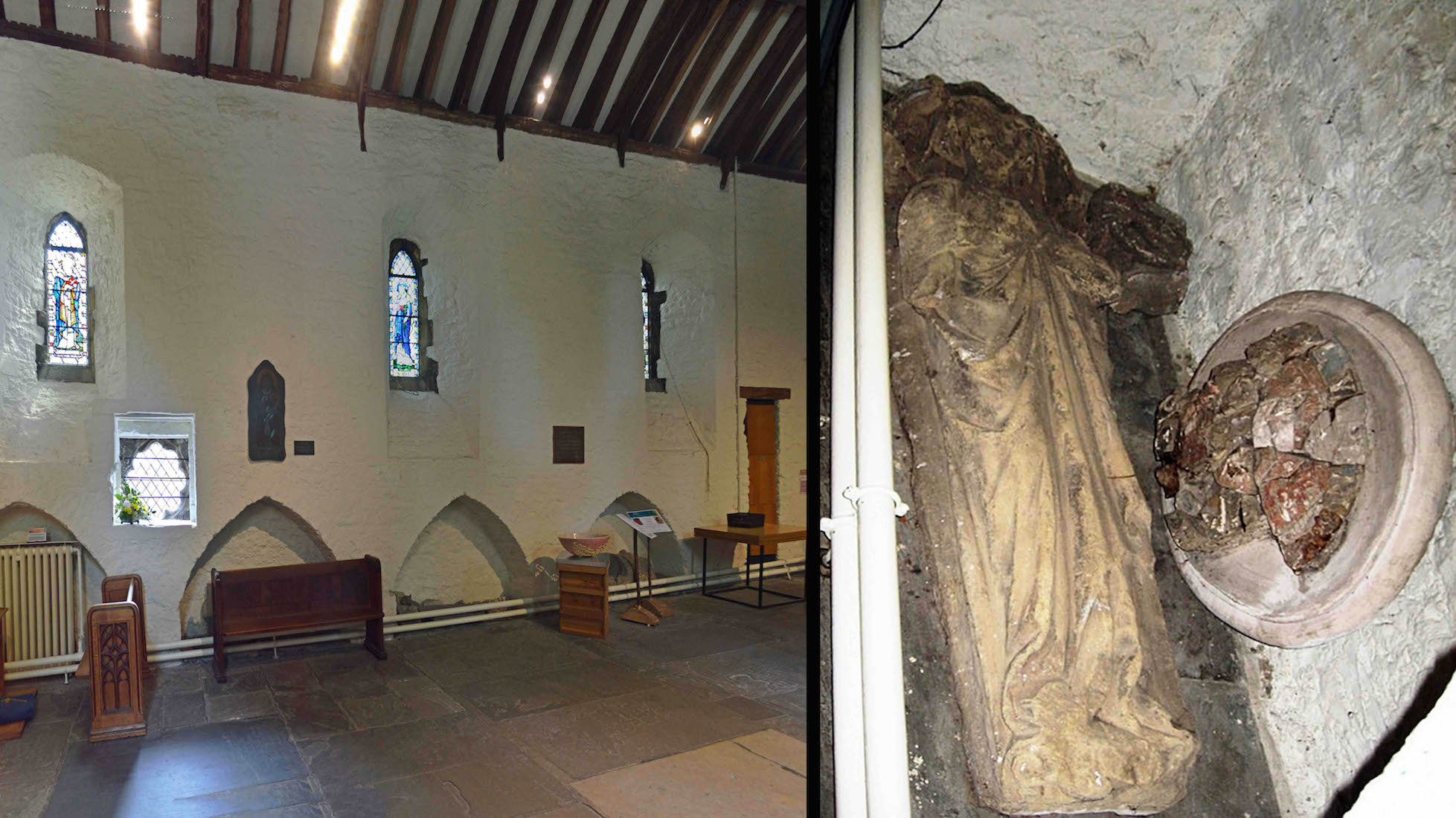
The South wall of the chapel has three regularly placed stained glass windows, and one very oddly placed window of clear lattice glass. Arched alcoves line the base: some appear to contain effigies. There is no identification of the old effigy shown at right. PLAN
22. CHAPEL SOUTH WINDOWS
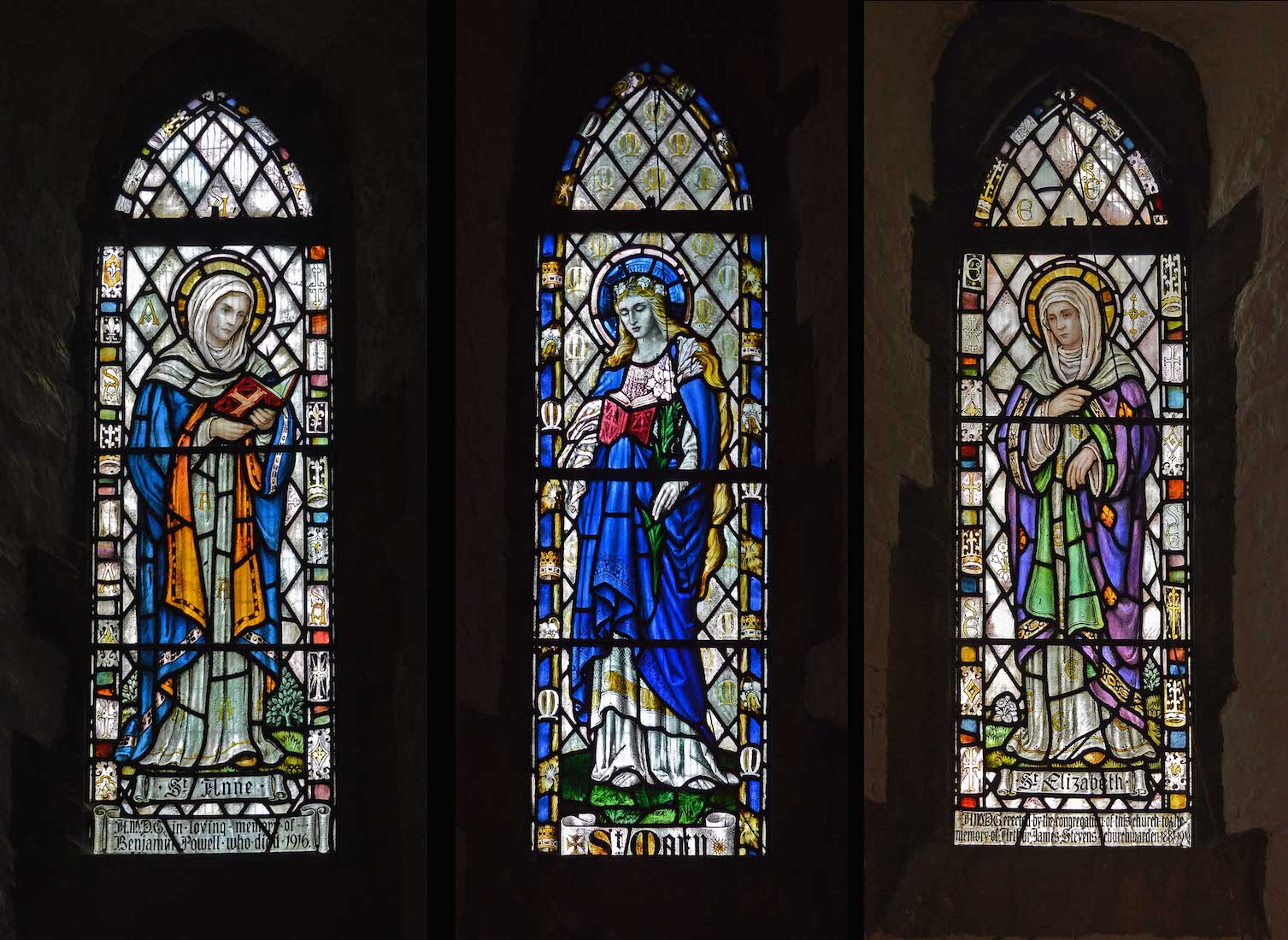
The three attractive side windows show the Virgin Mary at centre, her (traditional) mother St Anne at left, and her cousin St Elizabeth at right. Mary is dressed in blue and carries a fleur-de-lys.
23. ODD WINDOW AND ARTWORK
It is diffucult to imagine why this little square window was ever built into this chapel. Place for a cup of tea?! It is probably an original Saxon window. The sculpture of Virgin and Child is by Reg Beach, dated 1990. It is a work that was commissioned from the artist and was given for the St Mary Chapel as a thank offering.
24. CHAPEL NORTH WALL EFFIGY
On the North wall there lies a prominent effigy with a plaque above. On closer inspection, the text refers to some fragments just below it..
25. NORTH WALL SIGN AND BOOK
The text reads: ‘These fragments of alabaster are the only remains of a monument which once stood in the body of the church erected as the arms denote, to the memory of Sir John Morgan of Tredegar ☩ Knight of the Holy Sepulchre who died 1193 and his wife Janet daughter and heiress of David Mathew of Llandaff Esquire.’ Further along this wall is a Memorial Book in memory of the Officers and Men from South Wales who died in World War II.
26. TWO ICONS
On the West wall of the Galilee Chapel are displayed two large icons. At left is a version of the well known image of the Virgin Mary with the Child Jesus known as ‘Our Lady of Perpetual Sorrow’. At right is an image of Christ with the text: ‘Come to me all who are weary and over-burdened and I will give you rest.’
27. LEAVING THE GALILEE CHAPEL
We leave the Galilee chapel through the Norman arch between the icons. The columns on each side of the arch have capitals of native workmanship, based on classical sculpture. They show elements of both a Corinthian capital (with the overlapping leaves) and an Ionic capital with the two scrolls. Each face with the arms outstretched represents a person in prayer. [Photos: DJ]
29. AISLE WEST WINDOW
The window shows mothers bringing their children to Jesus. The use of clear glass above the scene is an interesting and effective idea.
30. WINDOW DETAIL AND PLAQUE
The plaque below the window probably refers to the window. It reads: ‘Sacred to the memory of Jane, wife of Thomas Lawrence of this Town; who died June 20th 1803 aged 70 years. Also in memory of the said Thomas Lawrence who departed this life May the 4th in the year 1811, aged 83 years.’
31. NORTH AISLE MEMORIALS
There are various memorial tablets on the North wall of this aisle. Of particular interest is the third plaque from the left, which tells us there is a vault beneath the organ which contains the remains of The Revd Matthew Monkhouse who died in 1822, and his son Charles who died in 1821.
32. NORTH AISLE ALTAR
Looking to the East end of this aisle we see a stand of organ pipes, and a small altar in front of it. The ceiling has some interesting colouring. The aisle also appears to take a turn to the left at this end. [Photo: DJ]
33. THE CRINDAU CHAPEL
This end portion of the North aisle is called the Crindau Chapel. In the far corner is an exit door: we have already noticed this from the outside. There is a further stained glass window, and several more memorial plaques. ‘Crindau’ (Welsh: Crindai) is an older inner-city area just north of the city centre in Newport, but the connection with the chapel is obscure.
34. CHAPEL WINDOW
The windows depict three coats of arms. These belong to the Diocese of Llandaff, the local county of Glamorgan (Land of Morgan), and the Diocese of Gloucester. [Photo: DJ]
35. CRINDAU CHAPEL ALTAR, ORGAN
The simple altar bears a cross and two candles. Behind is a stand of organ pipes – part of the Cathedral organ. St Woolos appears to have an active music program with choir and organ, but I have been unable to find out any details about the organ.
36. VIEW ACROSS THE NAVE
Looking back from the Crindau Chapel we see this view. Two rows of Norman columns delineate the nave, and we can see the arch leading back through to the Galilee Chapel. On either side of the arch is a tablet listing names of local people who have given their lives in battle. Beyond the nave is the South aisle, which is where we go next. [Photo: DJ].
38. SOUTH AISLE LOOKING WEST
Looking to the West of this aisle we notice that the West window is of clear glass, and that there is an interesting stone dresser below. The entry to the shop in the South Porch is to the left. There are further memorial tablets on these walls. [Photo: DJ]
39. SOUTH AISLE TOMB
In the Southwest corner of this aisle is this old stone tomb. It is decorated and could never be moved. [Photo: DJ]
40. SOUTHERN WINDOWS
There are four windows in the South wall. The Easternmost one has clear glass; the remaining three are shown here. At left is the story of the Good Samaritan, nicely told in three scenes. The other two windows show various Welsh saints: • St Gladys, St Gwynllyw, St Cattws; • St Caradac, Dewi Sant (St David), and St Maches.


